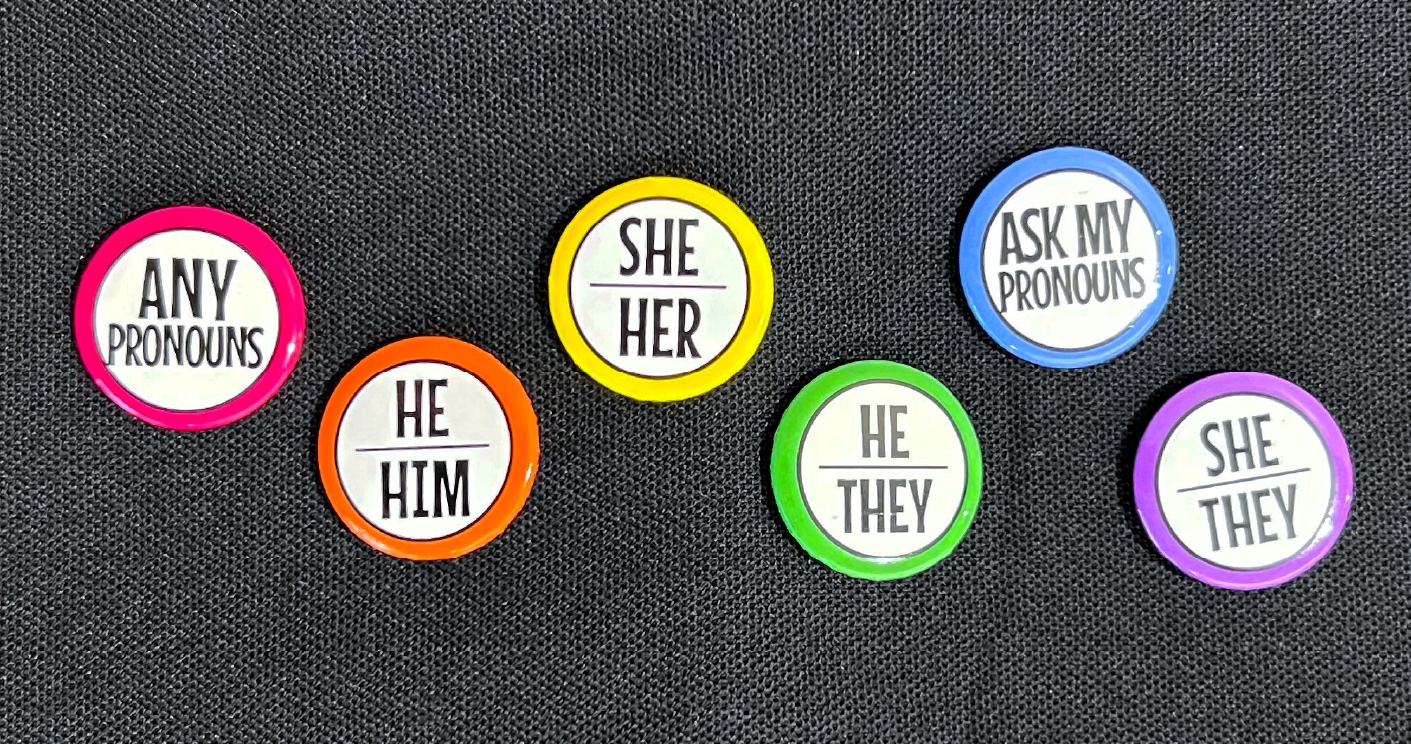International Pronouns Day, Wednesday 19 October, seeks to make respecting, sharing, and educating about personal pronouns commonplace.
Pronouns are used in everyday speech and writing and we use gendered pronouns to assign gender to people, often without even thinking about it. However, interpreting a person’s gender based on how they look or what they are wearing is not respectful or inclusive and can be incorrect. People may choose not to use any pronouns and to be referred to by only their name or change their pronouns for different reasons.
Acknowledging International Pronouns Day provides us with an opportunity to learn why gender pronouns are important, access resources and find out how to update our pronouns on our work systems.
“Macquarie University is proud to be a diverse, and inclusive community where all people are supported to be their genuine selves”, says Sophia Halpin (she/her), MQ Ally Network Co-Chair. “Acknowledging people by their pronouns or preferred name is a sign their identity is respected and valued.”
Free pronoun badges will be available on Wednesday 19 October across campus venues including:
- Crunch Café
- Esc
- Library Café
- Piccolo Lane
- Wally’s Coffee and Toasties
- Macquarie University Sport and Aquatic Centre
- Macquarie University Accommodation
- Women’s Safe room and Queer Safe room (located on the Ground floor, 18WW)
- Early Learning Centres (Banksia, Gumnut, and Waratah).
Pronoun cards will be available all week. These are another way of expressing pronouns visibly — including in your staff card wallet or on your desk — to let people know your pronouns.
For many of us, this is will be learning process, but with plenty of support from Macquarie community, as Tahlia White (she/her), first year speech pathology student explains.
“For transgender and gender non-conforming people, pronouns help us feel seen for our identities,” she says. “The wrong pronoun can often result in a wave of gender dysphoria. Ensuring we use the right pronouns for everyone is important, as everyone deserves to be seen for who they are. We won’t always get a pronoun right and that’s okay, we are all learning. What matters most is the effort to help our community feel validated and seen. That in itself will help transgender and gender nonconforming people feel validated and seen.”
There are resources available (including videos and web links) to share with your family and friends to learn more about the importance of using pronouns, how to change your pronouns and how to join the University’s Ally Network or participate in Ally Training.
But if you want to make a change today, here are some ideas:
- Add your pronouns on your email signature: (She/Her/Hers/He/Him/His/ They/Them/Theirs)
- Use gender neutral language where possible:
| Use: | Instead of: |
| Partner/spouse | Wife/husband |
| Welcome everyone | Ladies and gentlemen |
| Parental leave | Maternity leave |
| Children | Girls/Boys |
- Display pronouns on your Zoom account: Log into your Zoom account and edit your Pronouns under your Profile. You can select how you would like to share your pronouns, whether to always share in meetings, or be asked every time after joining meetings.
- Show your support for International Pronouns Day by wearing a pronouns badge or using the pronoun card.
This video from Minus 18 explains why pronouns matter, and how to use them to support the LGBTQ+ staff and students in our community.


 Back to homepage
Back to homepage
The advice at the end of this article is misguided. There is nothing wrong with referring to a female spouse as a “wife”, or a male spouse as a “husband”! There is no reason to completely eliminate those terms, particularly in one-to-one communications.
What the advice _should_ be is that “spouses” is a better phrasing than “husbands and wives” when addressing a large audience. Or “spouse” on a form, rather than “husband/wife”. The reason is that in those cases we won’t have the information available to know whether “husband” or “wife” (or neither?) is applicable.